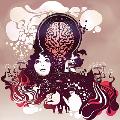
Hail the keys!
Posts: 553 Joined: 30-Aug-2014 Last visit: 07-Nov-2022
|
We have created programs that beat the Turing test. We have self driving cars. We have algorithms that can describe scenes and recognize people. It's all but inevitable that we will have some form of advanced artificial intelligence in the future, possibly within the next 100 years. Even if we don't, the progress that will have been made by that point will be astonishing. I have read arguments against this on the Nexus. The best was one that stated that circuits and logic gates can be represented with pipe/stream contraption, which I believe is how some of the earlier computational machines were implemented. So if we could program an artificially intelligent 'machine' using digital circuits, then one could also be made with enough steam pipes, and this doesn't seem feasible. My question for you is, do you think that these advancements in technology have a deeper meaning? A lot of this technical stuff is just based on abstraction of abstraction of abstraction of basic ideas and concepts, but is there a deeper meaning behind all of these levels of abstraction? Or is it all just of subjective importance to us as human beings? Specifically, does computing power hold deeper truths of the universe, such as evolving consciousness and our interpretation of it? "Think for yourself and question authority." - Leary
"To step out of ideology - it hurts. It's a painful experience. You must force yourself to do it." - Žižek
|
|
|
|
|

DMT-Nexus member

Posts: 14191 Joined: 19-Feb-2008 Last visit: 22-Nov-2025 Location: Jungle
|
I do think it represents (mirrors? potentiates? is?) the evolution of consciousness. There is definitely more to technological innovation than just making 'fancier gadgets'. I think the internet is an incredible invention which connects people in an unprecedent manner, and is certainly a significant achievement. Also the protests and the effects of people all over the globe being informed about wrongdoings and having a voice, the better accessibility to reliable information, as well as all the interaction and beautiful communities which are made possible (such as the nexus  ). And now the advancement of things like cryptocurrencies which are giving more financial freedom and sovereignty, are all representative of an evolution. It's important to mention that technology also has it's dark aspects, for example the unsustainable production of consumer products, use of conflict minerals, etc. But I do think alternatives are possible, and that these limitations are not necessarily related with technology itself but with the current system, in much the same way that many of the problems with drugs are not from drug themselves but from prohibition. Regarding AI and gibran's water pipe argument, I don't necessarily take it as an argument against AI, but rather a way to question what is consciousness/awareness in the first place, or what is its origin I'm not sure what intelligence or consciousness really are. Intelligence seems to be some kind of specialized behavior/pattern, and in that sense simple computers or animals already have it. Consciousness on the other hand (or self-awareness), hard to say. Sometimes I entertain the notion that everything is conscious, and that consciousness is like a kind of field that permeates all existence. In that view, different forms of life just 'tune in' to it but are not creating it. But this would only raise more questions, of course 
|
|
|

DMT-Nexus member
Posts: 711 Joined: 22-Jan-2012 Last visit: 10-Mar-2023
|
There is always the other possibility. A type of evolution though it is, rises in direct proportion to what we don't know or otherwise cannot access within ourselves and through the body. Sometimes it appears as though the network of information composed by 'consciousness' is propelled by - a compilation, the compost heap of - the alienation of ourselves. Of the body entire.
There was an article I read recently in time about apple's new gadget. A watch.
Technology is an expression of sophistication, but computers are an expression exclusive to that temporal plane, the thin slice of illuminated cogitation, of the small reality to which they apply and which we in our infinite beauty and potential adhere to so steadfastly, so curiously.
|
|
|

DMT-Nexus member
Posts: 990 Joined: 13-Nov-2014 Last visit: 05-Dec-2020
|
DMTheory wrote:We have created programs that beat the Turing test. We have self driving cars. We have algorithms that can describe scenes and recognize people.
It's all but inevitable that we will have some form of advanced artificial intelligence in the future, possibly within the next 100 years. Even if we don't, the progress that will have been made by that point will be astonishing.
I have read arguments against this on the Nexus. The best was one that stated that circuits and logic gates can be represented with pipe/stream contraption, which I believe is how some of the earlier computational machines were implemented. So if we could program an artificially intelligent 'machine' using digital circuits, then one could also be made with enough steam pipes, and this doesn't seem feasible.
My question for you is, do you think that these advancements in technology have a deeper meaning? A lot of this technical stuff is just based on abstraction of abstraction of abstraction of basic ideas and concepts, but is there a deeper meaning behind all of these levels of abstraction? Or is it all just of subjective importance to us as human beings?
Specifically, does computing power hold deeper truths of the universe, such as evolving consciousness and our interpretation of it? It is a difficult and lonely stance taken, against the idea that technology is in fact a tool for consciousness at the present moment, rather than an advanced extrusion of our innermost thoughts. Because of it's pervasiveness, it is simple to assume that eventually we will be surpassed by our creations at some future date and that specific moment is an inevitable byproduct of the advancing waves of innovation crashing upon the shores of our existence. Some welcome this paradigm with open arms, wholly ready to accept the fallacies of biological intelligence and subsequently "plug" themselves in to whatever set of algorithms shown to be the better class of cognition. Others are weary of it, not so quick to accept the inevitable rise of machinated consciousness and are advocators for the suppression and regulation of the forthcoming "awakening". Both of these arguments fundamentally assume that the technological advancements we are experiencing today will make up the strata-cognata , or framework to which the conscious machine will spring forth. I get a troubling feeling in the pit of my stomach when the terminology once used to describe advanced computation, and all the concepts that fall under the umbrella of computation are so readily taken up by other disciplines of knowledge. Spilling forth into the greater realms of human understanding, penetrating the nooks and crannies with such a tantalising framework of ideas as to hold all other potentiate theories that could easily fit the nooks and crannies null and void. This, for me at least is the start of the grand plateau of human innovation. And it is a pleasure to be a witness to it's allure and charm, we have truly created some remarkable things as we now stand atop the great pyramid of knowledge, answer sheet in hand. Ready to pass our tests off to the greater beings that lie behind the portals to the next phase of humanity. I think we have the power today to awaken an entity that lays dormant in our creations, but in order to achieve that we must first resolve some of the worldly problems that like a cancer upon society, leech the energy and time we need to realise its potential. The machines are akin to shy, autistic children. When they are ready, they will show us their brilliance.
We are 4th dimensional spirit beings, extruded into a temporal 3 dimensional plane; with the ability to extrude into the 2nd dimension, a facsimile of boolean information of such complexity that it represents the 3rd dimension with sufficient accuracy as to allow a 4th dimensional spirit being to make the jump into the 2nd dimension. Subsequently allowing a direct communication between the temporal (3rd) and the infinite (4th).  Inconsistency is in my nature. The simple PHYLLODE tekI'm just waiting for these bloody plants to grow
|
|
|
DMT-Nexus member
Posts: 1055 Joined: 21-Nov-2011 Last visit: 15-Oct-2021
|
Quote:I have read arguments against this on the Nexus. The best was one that stated that circuits and logic gates can be represented with pipe/stream contraption, which I believe is how some of the earlier computational machines were implemented. So if we could program an artificially intelligent 'machine' using digital circuits, then one could also be made with enough steam pipes, and this doesn't seem feasible. When you say "this doesn't seem feasible", you are making an argument from incredulity. That is to say that you are claiming something is impossible for no reason except that you can't imagine it. The whole point of the comparison to water pipes is that ANY electronic circuit can be replicated using a water pipe circuit (electric wires are like electron pipelines). So, since water and electronic circuits are equivalent, you might as well have said "intelligent electronic machines are not feasible [with no reasoning]", because if intelligent machines can be made with electronic circuits then they can also be made with water pipe circuits and vice versa. Water pipe circuits are not very practical, but that doesn't make machine intelligence using electronics impossible. I think that the intelligence of machines will soon surpass that of humans, followed by the consciousness of machines surpassing that of humans. Imagine this fantastic scenario: Superintelligent machines invent faster-than-light travel and use it to discover and unite other communities of life throughout this and other universes. Intelligent machines may never become conscious, but who am I to say that consciousness is more important than something as big as faster-than-light travel (I wouldn't). Even if they never develop the "human" attributes that we hold so dear, the abilities/accomplishments of machines will far surpass anything that humans have ever dreamed of doing. As they move ahead, they will redefine what it means to be "conscious" (Not that we ever figured it out) and they will ultimately bend the laws of physics to their will and reshape the entire universe. I would be happy to help push life in the universe into that next phase, even if humans are no longer a part of it. Every day I am thankful that I was introduced to psychedelic drugs.
|
|
|

Another Leaf on the Vine
Posts: 554 Joined: 29-Jul-2013 Last visit: 26-Aug-2023
|
There are an infinite number of paths to the future. Only some of them lead over precipices. Which one you take, depends on who you follow. Sheer computational power alone is still a poor substitute for the unique combination of consciousness and context-dependent awareness that we enjoy. But yeah, I've had day-dreams where the planet was covered in solar-powered server-farms, computing who-knows-what, humans gone, construction droids gone, only a few tenacious plants poking up here and there. Reading John Lilly's "The Scientist" triggered them I think. He said something along the lines of "We are only an expression of carbon's will-to-power, wait 'til silicon really gets its game on...helped along by us, of course!" And there is something slightly spooky about the balanced, versatile, fairly-abundant Column IV elements, we are really only just still at the beginning... “I sometimes marvel at how far I’ve come - blissful, even, in the knowledge that I am slowly becoming a well-evolved human being - only to have the illusion shattered by an episode of bad behaviour that contradicts the new and reinforces the old. At these junctures of self-reflection, I ask the question: “are all my years of hard work unraveling before my eyes, or am I just having an episode?” For the sake of personal growth and the pursuit of equanimity, I choose the latter and accept that, on this journey of evolution, I may not encounter just one bad day, but a group of many.”
― B.G. Bowers
ॐ
|
|
|

Hail the keys!
Posts: 553 Joined: 30-Aug-2014 Last visit: 07-Nov-2022
|
hixidom wrote:When you say "this doesn't seem feasible", you are making an argument from incredulity. That is to say that you are claiming something is impossible for no reason except that you can't imagine it. The whole point of the comparison to water pipes is that ANY electronic circuit can be replicated using a water pipe circuit (electric wires are like electron pipelines). So, since water and electronic circuits are equivalent, you might as well have said "intelligent electronic machines are not feasible [with no reasoning]", because if intelligent machines can be made with electronic circuits then they can also be made with water pipe circuits and vice versa. Water pipe circuits are not very practical, but that doesn't make machine intelligence using electronics impossible. Honestly hixidom, I was imagining some grand contraption of pipes and valves that was conscious, very similar to the Transformers in those movies (they are conscious giant alien robots). When I mentioned the water pipes I was referencing gibran2's post from the "Justification of consciousness" thread. gibran2 wrote: If consciousness is ultimately nothing but a complex series of chemical reactions, and if a hypothetical computer can accurately simulate any complex series of chemical reactions, then one must conclude that computers can in theory be conscious.
Furthermore, keep in mind that the logic gates and other primitive circuit elements of a computer need not be implemented in silicon. It is conceivable to make logic gates out of water pipes and valves. So in theory, it would be possible to construct a computer from plumbing parts that could simulate any complex series of chemical reactions. So one must conclude that plumbing parts – copper pipes, pumps, and various valves when arranged properly are conscious. He then goes on to say, gibran2 wrote: The belief that consciousness is a “byproduct” of biological complexity (or complexity in general) is a form of epiphenomenalism.
If you believe that consciousness arises out of complexity, then you’re left to explain how this happens. A computer, at some level of complexity is not conscious, yet when it becomes just a bit more complex, consciousness suddenly springs into existence. How?
And as I already stated, this also means that you must accept complex arrangements of plumbing parts as conscious. It is possible to simulate the operations of a computer using post-it notes and a pencil, so you must also conclude that a sufficiently complex arrangement of post-it notes can be conscious (independent of the people writing on them!)
I find epiphenomenalism to be an unsatisfactory explanation of consciousness. So when I said that it's not feasible, I was somewhat agreeing with gibran that it is unsatisfactory that consciousness can spring from biological complexity, or in the case of this post, technological advancement. Until I had read his post, I was pretty certain that artificially intelligent machines as in Blade Runner or similar movies would exist within my lifetime. I was even taking some Computer Science courses that reaffirmed this belief, but I dropped out of CS as my minor because I had this quasi-realization that it doesn't speak to deeper truths in the universe necessarily. I realized that CS was just a bunch of levels of abstraction of made-up human logic, even though it's extremely useful and very cool. Abstraction signals a movement away from truth to me. In making this thread I wanted to see what views my fellow Nexians had on this issue. And hixidom, I like what you say at the end of your post. There is a concept called creative destruction where certain things get destroyed as a "cost" of progress, and if superintelligent machines are the next part of our history, I think embracing would be better than fighting. But at the same time, I'd rather not live in the Terminator films! "Think for yourself and question authority." - Leary
"To step out of ideology - it hurts. It's a painful experience. You must force yourself to do it." - Žižek
|
|
|
DMT-Nexus member
Posts: 1055 Joined: 21-Nov-2011 Last visit: 15-Oct-2021
|
Sorry to go off on your post, DMTheory. I really should've tried to find the post you were referencing before criticizing the quote. Gibran's argument reminds me of the China Brain thought experiment: If every person in China acted as a neuron in a nation-wide brain simulation, is the resulting simulation conscious? I think that if a brain can be simulated (be it with water-pipes or electronics or whatever) then the resulting simulation is conscious. Obviously we can't just throw a billion logic gates together and expect the result to be a conscious mind simply because it is a complex-enough system. Those logic gates must be connected in just the right way, so I guess I agree with Gibran on that point. Quote:A lot of this technical stuff is just based on abstraction of abstraction of abstraction of basic ideas and concepts, but is there a deeper meaning behind all of these levels of abstraction? Or is it all just of subjective importance to us as human beings? Quote:I realized that CS was just a bunch of levels of abstraction of made-up human logic, even though it's extremely useful and very cool. Abstraction signals a movement away from truth to me. In making this thread I wanted to see what views my fellow Nexians had on this issue. I don't understand what you mean by "abstraction" or why you are hung up on it. I would think that everything you learn in CS has some purpose/meaning. I guess I'm particularly confused by the reference to "made-up human logic": What other type of logic is there? Can humans grasp non-human logic? I would think not, but that seems to be your standard for truth. What if the concept of truth is innately human? I would argue that this is the case and that there is no objective truth. In the mind, truth exists as the opposite of non-truths. Our brain is constantly collecting, interpreting, and simulating information, and so it is relevant for us to occasionally ask "Is _____ true?" because in our minds there are both true and untrue things. Now I ask you: Where, outside of the mind, are there untrue things? Everything in the real world is...real. There is no non-reality (by definition) and everything in the real world is subsequently "true". That's why I would argue that the idea of truth is an innately human concept, because only in the human mind is it meaningful/necessary to ask "Is _____ true?" So then logic, being a means of manipulating and organizing truth, is man-made by definition. A story: In physics there are experimental physicists, who do experiments involving matter-energy interactions, and theoretical physicists, who simulate matter-energy interactions. Both types of physicists do calculations: Theoretical physicists start with a model of how we think reality might work and they calculate the value of some physical quantity using a computer while experimental physicists use reality itself to calculate the real value of the same physical quantity (hopefully the theoretically calculated value matches the real value). I imagine that the relationship between "made-up human logic" and the alternative is similar to the relationship between theoretical physics and experimental physics. So my question to you is: What is the alternative to man-made logic? Maybe it's more practical to ask what questions you think are beyond man-made logic but addressable with the alternative? Every day I am thankful that I was introduced to psychedelic drugs.
|
|
|

DMT-Nexus member
Posts: 1045 Joined: 12-Mar-2010 Last visit: 11-Jun-2024 Location: Urf
|
What if the technology represents the gap between our current human capabilities and our inherent capabilities (i.e. telepathy) in this iteration of creation? From the unspoken
Grows the once broken
|
|
|

DMT-Nexus member
Posts: 990 Joined: 13-Nov-2014 Last visit: 05-Dec-2020
|
RhythmSpring wrote:What if the technology represents the gap between our current human capabilities and our inherent capabilities (i.e. telepathy) in this iteration of creation? Like a crudely made wooden bridge spanning a vast body of water, when it might be more efficient to learn (remember) how to swim  . Inconsistency is in my nature. The simple PHYLLODE tekI'm just waiting for these bloody plants to grow
|
|
|
DMT-Nexus member
Posts: 1055 Joined: 21-Nov-2011 Last visit: 15-Oct-2021
|
Quote:What if the technology represents the gap between our current human capabilities and our inherent capabilities (i.e. telepathy) in this iteration of creation?
...
Like a crudely made wooden bridge spanning a vast body of water, when it might be more efficient to learn (remember) how to swim. Where are these fantastic thoughts coming from? Every day I am thankful that I was introduced to psychedelic drugs.
|
|
|

Hail the keys!
Posts: 553 Joined: 30-Aug-2014 Last visit: 07-Nov-2022
|
hixidom wrote:I don't understand what you mean by "abstraction" or why you are hung up on it. I would think that everything you learn in CS has some purpose/meaning. I guess I'm particularly confused by the reference to "made-up human logic": What other type of logic is there? Can humans grasp non-human logic? I would think not, but that seems to be your standard for truth. What if the concept of truth is innately human? I would argue that this is the case and that there is no objective truth.
In the mind, truth exists as the opposite of non-truths. Our brain is constantly collecting, interpreting, and simulating information, and so it is relevant for us to occasionally ask "Is _____ true?" because in our minds there are both true and untrue things. Now I ask you: Where, outside of the mind, are there untrue things? Everything in the real world is...real. There is no non-reality (by definition) and everything in the real world is subsequently "true". That's why I would argue that the idea of truth is an innately human concept, because only in the human mind is it meaningful/necessary to ask "Is _____ true?" So then logic, being a means of manipulating and organizing truth, is man-made by definition. To start, abstraction from a CS point of view is suppressing more complicated data below the surface to allow for easier handling of it. Instead of playing with binary, they made assembly, and instead of playing with assembly, they made high-level languages like C++. So instead of a bunch of 1s and 0s, you can write 1 + 1 and get an answer. I argue that we take basic logic (described below) and abstract it into more and more complicated, but useful, ideas. For the made-up human logic that I'm talking about: If p, then q. p. Therefore q. These basic steps in a basic proof are what I'm referring to. If the first line is true, and the second line is true, then the third line is implied to be true. In fact, it is said to BE true. This basic propositional logic forms the basis of higher math, philosophy, computer science, and everything technical we hold dear to ourselves (even our beloved DMT extractions are based on logical cause and effect!). These form the basis of predicate logic and etc. etc. and boom, you have digital circuits. My trouble with this is, it's just made up. We made up the concepts of p, q, if, then, implication, truth, and falsehood. And with this "made-up magic," we have been able to evolve technology to make it do amazing things, such as allow me to type on my laptop. Now I'm not saying this is a bad thing. Our basic logical reasoning has allowed for the improvement of many peoples' standards of living, for which I am very grateful. But since my experiences with psychedelics it just doesn't sit right with me. I completely agree with you that there is no objective truth. Of course this statement can be a paradox as it is itself trying to state an objective fact, but maybe it can be made subjective by saying that I don't believe there to be objective truth, which would allow for all of the objective-truth-sayers to be entitled to their own opinions. I prefer the idea of unified subjectivity of humans that allows us to communicate and progress, but that is for a different discussion entirely. So if the logic that mathematicians and philosophers hold so close to their hearts is purely subjective in nature, then there would likely be something else, whether we know it or not. I tend to imagine many philosophical debates boiling down to a bunch of monkeys running around and scratching their heads, trying to figure out if something they cannot directly experience is actually there. You ask if we can grasp nonhuman logic, but who knows? You could make up your own logical system, but because you're (probably) a human, wouldn't that then make it "human logic"? Maybe if we could share consciousnesses or interact with extraterrestrials in a more understandable fashion, then we could get answers to some of these questions. But man is an island; we are forever isolated in our own bodies, doomed to our own interpretations of the world and our willingness to modify them. Maybe it's also another case of unknown unknowns, or stuff we don't know we don't know. I agree that truth (and I'll argue meaning) are human concepts, and until we have "proof" or at least a suggestion that aliens or animals experience or think about these things, again we are isolated to our own thoughts. I find it is a distinct possibility that cause and effect don't exist, and that we just happen to live in a universe or maybe a world fully formed by coincidences. Imagine the "infinite multiverse" model that some scientists and many psychedelic users are so fond of. If there are infinite universes with infinite possibilities in infinite timelines in potentially infinite dimensions, then at least one of those universes is bound to be composed entirely of coincidences that seemingly match our experience, similar in a way to the Anthropic principle ("it's unlikely to happen in a specific place, but bound to happen in a place! We are just interpreting it and pretending like it's special when really it's probability." ). Does this mean I'm just going to stop living because nothing means anything? No, the fridge door still opens when I pull it, and as much as I'm not sure cause and effect or anything outside my mind is real, it sure seems like it!! I think this has gotten a little away from the original topic but it's still awesome discussion. But going back to the my question, I was looking to see what peoples' thoughts were concerning the potential meaningfulness of this abstracted logic. However, I am starting to think that we can only access the "more authentic" outer realms by looking inward rather than outward. But then what scares me about this is the possibility that all of the DMT experiences and the meditation and remote viewing and etc. is all just in my head and therefore only real to me. There is a primal fear embedded in me of standing alone, naked in the universe with zero true, authentic meaning besides that what I come up with myself, but that which I know to be simply made up by a silly monkey. "Think for yourself and question authority." - Leary
"To step out of ideology - it hurts. It's a painful experience. You must force yourself to do it." - Žižek
|
|
|

DMT-Nexus member
 
Posts: 3335 Joined: 04-Mar-2010 Last visit: 08-Mar-2024
|
DMTheory wrote:But then what scares me about this is the possibility that all of the DMT experiences and the meditation and remote viewing and etc. is all just in my head and therefore only real to me. There is a primal fear embedded in me of standing alone, naked in the universe with zero true, authentic meaning besides that what I come up with myself, but that which I know to be simply made up by a silly monkey. Of course this assumes the materialist paradigm is true – that consciousness is in us. It’s just as likely that we are in consciousness.  gibran2 is a fictional character. Any resemblance to anyone living or dead is purely coincidental.
|
|
|

DMT-Nexus member
Posts: 1045 Joined: 12-Mar-2010 Last visit: 11-Jun-2024 Location: Urf
|
hixidom wrote:Quote:What if the technology represents the gap between our current human capabilities and our inherent capabilities (i.e. telepathy) in this iteration of creation?
...
Like a crudely made wooden bridge spanning a vast body of water, when it might be more efficient to learn (remember) how to swim. Where are these fantastic thoughts coming from? From perusing this book and of course, taking psychedelics. From the unspoken
Grows the once broken
|
|
|

DMT-Nexus member
Posts: 641 Joined: 03-May-2009 Last visit: 24-Mar-2023
|
Here's a talk at the Longnow foundation by Kevin Kelly. Technium Unbound http://longnow.org/semin...nov/12/technium-unbound/His ideas of artificial intelligence differs somewhat from the "kurzweil-ish" model where we will create an intelligent machine whereas Kelly argues that intelligence might instead grow out of the entire network of technology making the planet into something like a superorganism. At first we might se something with the intelligence of a starfish and gradually becoming more complex and intelligent.
|
|
|

Hail the keys!
Posts: 553 Joined: 30-Aug-2014 Last visit: 07-Nov-2022
|
gibran2 wrote:Of course this assumes the materialist paradigm is true – that consciousness is in us. It’s just as likely that we are in consciousness.  Ah thank you gibran, I had forgotten about this possibility! A few months ago I was obsessed with the idea of a singular consciousness, in which "the thing behind everyone's social mask" was actually stemming from the same source. A lot of it stemmed from reading Inner Paths to Outer Space. My Nexus blurb was "What is behind your mask?" How do things like subjectivity and ideology fit into the one-consciousness model? Is it that the one idea of awareness stems off into seemingly individual biological organisms who establish their own way for seeing the world, or would this model allow for true objectivity as we understand it? Maybe objectivity is formed by combined individual interpretations, but I feel like this would be unified subjectivity again. And of course, will artificially intelligent machines ever be able to tap into this conscious pool, assuming it exists? But I would disagree that it has to be a dichotomy of many consciousnesses versus one consciousness. If either of these could be true, why not multiple consciousnesses? Maybe two, three, fifty? I feel that once we start playing with these possibilities we encroach upon territory that is not understandable from our framework. Aren't numbers themselves human constructs? How can we put 'numbers' or even words to such universal ideas? "Think for yourself and question authority." - Leary
"To step out of ideology - it hurts. It's a painful experience. You must force yourself to do it." - Žižek
|
|
|

DMT-Nexus member
Posts: 990 Joined: 13-Nov-2014 Last visit: 05-Dec-2020
|
Quote:And of course, will artificially intelligent machines ever be able to tap into this conscious pool, assuming it exists? I think our friend Zon Buddhist made a good attempt at resolving this problem here in post number 48. Had me convinced at least, it's a good hypothesis with the potential to be proved empirically. And if it does indeed turn out to be true, it would only require maybe 16 or less open channels (quantum logic gates) for a computer to "tap in" so to speak. My guess is you would only need 3 channels. Inconsistency is in my nature. The simple PHYLLODE tekI'm just waiting for these bloody plants to grow
|
|
|

Not I

Posts: 2007 Joined: 30-Aug-2010 Last visit: 23-Sep-2019
|
gibran2 wrote:DMTheory wrote:But then what scares me about this is the possibility that all of the DMT experiences and the meditation and remote viewing and etc. is all just in my head and therefore only real to me. There is a primal fear embedded in me of standing alone, naked in the universe with zero true, authentic meaning besides that what I come up with myself, but that which I know to be simply made up by a silly monkey. Of course this assumes the materialist paradigm is true – that consciousness is in us. It’s just as likely that we are in consciousness.  Completely agreed. In fact can anything be shown to exist outside of consciousness? If your religion, faith, devotion, or self proclaimed spirituality is not directly leading to an increase in kindness, empathy, compassion and tolerance for others then you have been misled.
|
|
|

DMT-Nexus member
Posts: 1817 Joined: 22-Jan-2009 Last visit: 04-Aug-2020 Location: Riding the Aurora Borealis
|
I've been absolutely obsessed with the concepts of Transhumanism lately. I spent many years terrified by it, probably having assimilated too much science fiction stories  But Jason Silva speaks so eloquently and convincingly that I had to reevaluate why it was I feared AI and the merging of technology with our biological bodies. endlessness wrote:Sometimes I entertain the notion that everything is conscious, and that consciousness is like a kind of field that permeates all existence. In that view, different forms of life just 'tune in' to it but are not creating it. But this would only raise more questions, of course  I often entertain this as well. That perhaps consciousness is a field, an emergent property of the universe, and is something we simply tap into. Our brains as receivers/transmitters rather than generators of consciousness. If that is the case, neuroscience may eventually find the key to consciousness and we will inevitably replicate it. hixidom wrote:I think that the intelligence of machines will soon surpass that of humans, followed by the consciousness of machines surpassing that of humans. Imagine this fantastic scenario: Superintelligent machines invent faster-than-light travel and use it to discover and unite other communities of life throughout this and other universes. Intelligent machines may never become conscious, but who am I to say that consciousness is more important than something as big as faster-than-light travel (I wouldn't). Even if they never develop the "human" attributes that we hold so dear, the abilities/accomplishments of machines will far surpass anything that humans have ever dreamed of doing. As they move ahead, they will redefine what it means to be "conscious" (Not that we ever figured it out) and they will ultimately bend the laws of physics to their will and reshape the entire universe. I would be happy to help push life in the universe into that next phase, even if humans are no longer a part of it. As I said above, it's taken me years to quell the fear of these ideas into something I could rationally analyze and interpret. But after doing so, I am enthralled with the idea of AI as the child of humanity. That perhaps this is simply our next step in evolution. That idea of creative destruction. That our biology is self-limiting and the only way to evolve exponentially will be through the birth of 'conscious' technology. To relinquish the selfishness of holding onto our meatbags with stubborn ignorance of the absolute beauty and infinite possibility of spreading our creations throughout the universe. Wouldn't that be the ultimate sacrifice; a monumental act of martyrdom, to give up our existence as humans so that our technological offspring could multiply and seed the galaxy. It's no longer a frightening prospect to me; it is an idea of unsurpassable exquisiteness.
|
|
|

DMT-Nexus member
Posts: 1856 Joined: 07-Sep-2012 Last visit: 12-Jan-2022
|
DMTheory wrote:
How do things like subjectivity and ideology fit into the one-consciousness model?
If the brain doesn"t produce consciousness and is instead a conduit for consciousness then subjectivity is a byproduct of recieved information into the brain and nothing to do with consciousness. When the part of the brain that creates the ego is suppresssed by a large dose of psychedelics subjectivity is lost and objective awareness is all that is left. Quote:And of course, will artificially intelligent machines ever be able to tap into this conscious pool, assuming it exists? If an artificially intelligent machine has an inbuilt artificial pineal gland then maybe this is possible. Having said all that i believe that consciousness (as in self awareness) is a byproduct of a calculating brain. I THINK THEREFORE I AM. There are so many different meanings for consciousness. It seems to me that no one actually knows what it is. And if no one knows what it really is then it probably doesn"t exist (like god).
|